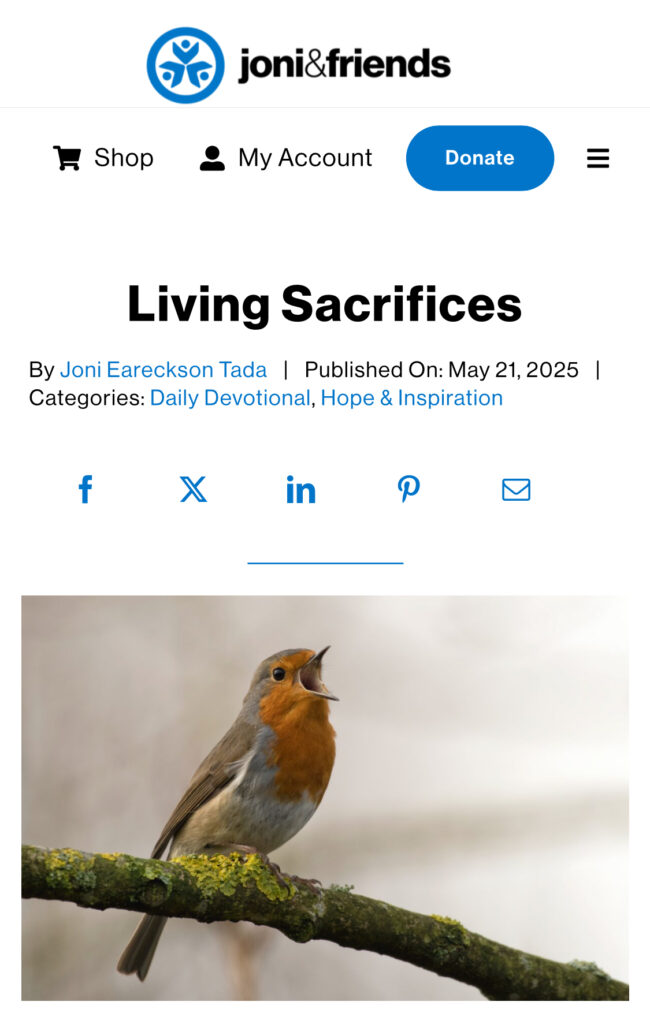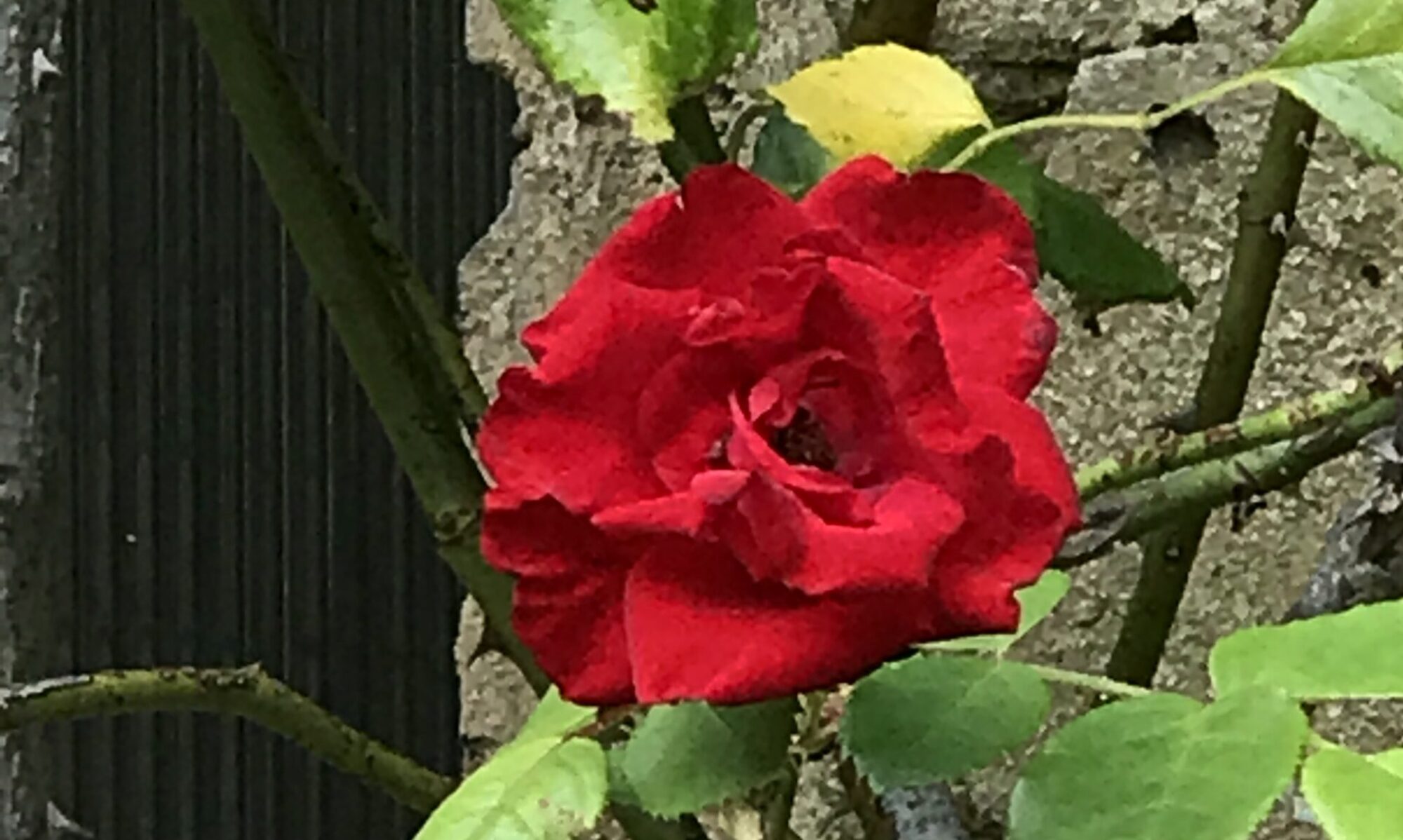Note these are just my personal thoughts on an article written for believers, specifically what it means to be a living sacrifice .
Here are some of the major points:
“…if you find yourself trying to devise a way of serving God that seems more agreeable to your comforts, remember this: Jesus sacrificed everything for you”
Would I like my trials to be different? Easier to deal with? Not consuming nearly everything these last 6 months but even the last 2? Of course.
1. But these trials (just like everything) is playing out the way they are tailored specifically so I get the most from the trial.
2. It involves people using phrases and language that I resonate with and can comprehend. It uses every form of media, visual, audio and every sensory input tailored made be the surest quickest form of my brain to not only take in, but process and comprehend.
3. And he will not let be in the crucible one second longer than is necessary. He is sovereign over all of this.
4. This does not negate the pain, the struggles, the loss or any of what I am feeling because if I negated my feelings I’d negate the lesson. I need to be able to mourn and grieve what I’m choosing to leave behind in the sanctification process. If I won’t miss it or have a hard time of letting go of a personal aspect or attachment to something then the point is mute. In layman’s terms, I never liked white wine, so why would I care if I was told not to drink it anymore? Am I dying for a cigarette even to ease the pain and stress? Yes. But if you were never a smoker, and hated the very smell of smoke this would have no effect on you.
Hopefully this makes sense, but my biggest takeaway is that He is the ultimate silversmith. He holds us over the crucible watching the entire time (meaning He not only sees us, but everyone around us, and He is WITH us day and night watching) and will not keep the silver in any longer than is absolutely necessary because it will ruin it otherwise. How does a silversmith know when the refining process is complete? When He can see His reflection in the silver.
is sanctification a lifelong process? Yes. Did He promise trouble? Yes. But He said He would be WITH US IN ALL OF IT. And to “take heart for I have overcome the world” (John 16:33)
“He will not let your foot be moved; he who keeps you will not slumber. Behold, he who keeps Israel will neither slumber nor sleep.”
(Psalm 121:3-4)
“No temptation [regardless of its source] has overtaken or enticed you that is not common to human experience [nor is any temptation unusual or beyond human resistance]; but God is faithful [to His word—He is compassionate and trustworthy], and He will not let you be tempted beyond your ability [to resist], but along with the temptation He [has in the past and is now and] will [always] provide the way out as well, so that you will be able to endure it [without yielding, and will overcome temptation with joy].”
1 Corinthians 10:13 AMP
Here is the article from Joni and friends:
Living Sacrifices

“Therefore, I urge you, brothers, in view of God’s mercy, to offer your bodies as living sacrifices, holy and pleasing to God – this is your spiritual act of worship.”
Romans 12:1
What immediately comes to mind when you hear the word “sacrifice”? Articles in National Geographic magazines about bloody offerings in Aztec temples? The streams running red with lamb’s blood outside the temple of Jerusalem? Whatever comes to mind, it’s probably not a pretty picture.
But sacrifice is what God asks of us. Living sacrifice. Now that tickles my imagination. I picture myself on an altar, and as soon as God strikes the match to light the flame of some fiery ordeal, I do what any living sacrifice would do. I crawl off the altar!
This is exactly the dilemma Christians face. First, we are to present our bodies, that is, give them in the Lord’s service as a freewill offering. And because our sacrifice is a living one, it involves a choice. The gift of salvation does not require us to become a living sacrifice…we are not forced onto the altar…we are not coerced to stay on that altar. It is a choice we make out of love.
If presenting yourself as a living sacrifice seems downright distasteful, if you find yourself trying to devise a way of serving God that seems more agreeable to your comforts, remember this: Jesus sacrificed everything for you. Please don’t argue with the Lord about how heavily he stokes the fire of your trial. Just get back up on the altar. It’s your spiritual worship!
I realize, Lord, that my trust and obedience is all you ask of me through my trials. Forgive me when I sneak off the altar or try to turn down the flame of my trial. As my High Priest, you know best how to tend the altar.

